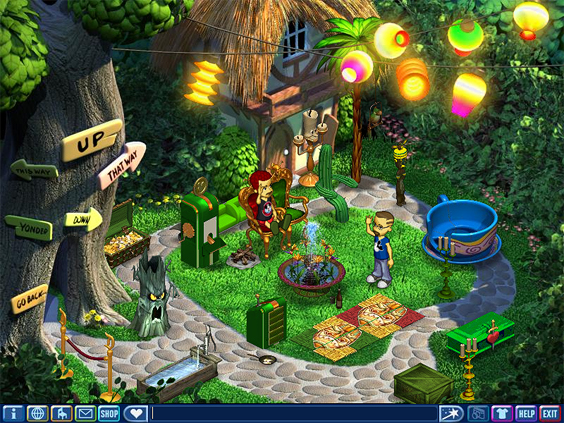As I said in my first blog, borgesian bibliophilia is my method for writing not only on Borges, but on other writers also. For today, I will take a break from Borges (because every organism needs a Sabbath to grow and ripen the more) and write about the poet whose line stands as a curious epigram at the beginning of "El Libro de Arena"—George Herbert and his poem "The Collar."
A few autobiographical notes on George Herbert. He was an Anglican priest and near contemporary of John Donne. Herbert's mother, Magdalen, was actually a friend and patron of John Donne. While Donne was appointed Dean of St. Paul's Cathedral in the city of London and thereby preached to statesmen, Herbert was priest of a small parish in Wiltshire.
Among literates, it is also common to compare the poetry of Donne and Herbert. While Donne's poetry is learned and alludes to ancient cosmology and philosophy, Herbert derives his metaphors from Scripture. Some metaphors include the body as temple, the heart as altar, redemption as tenantry, and the believer's lifespan as pilgrimage.
For more on George Herbert (1593-1633) please visit your local knowledge archive, and by that I mean a public library.
Here's the poem:
The Collar
I struck the board and cried, "No more;
I will abroad!
What? shall I ever sigh and pine?
My lines and life are free, free as the road,
Loose as the wind, as large as store.
Shall I be still in suit?
Have I no harvest but a thorn
To let me blood, and not restore
What I have lost with cordial fruit?
Sure there was wine
Before my sighs did dry it; there was corn
Before my tears did drown it.
Is the year only lost to me?
Have I no bays to crown it,
No flowers, no garlands gay? all blasted?
All wasted?
Not so, my heart; but there is fruit,
And thou hast hands.
Recover all thy sigh-blown age
On double pleasures: leave thy cold dispute
Of what is fit and not. Forsake thy cage,
Thy rope of sands,
Which petty thoughts have made, and made to thee
Good cable, to enforce and draw,
And be thy law,
While thou didst wink and wouldst not see.
Away! take heed;
I will abroad.
Call in thy death's-head there; tie up thy fears.
He that forbears
To suit and serve his need,
Deserves his load."
But as I rav’d and grew more fierce and wild
At every word,
Methoughts I heard one calling, Child!
And I replied, My Lord.
There are really only two parts to this poem: the last four lines marked by the coordinating conjunction "But" and everything else. In the first section he raves against his childish relationship with authority (whether divine or civil) and yearns for liberty, and in the second section he submits, seemingly out of fear, to the paternal and regal voice of what Lacan calls the Father.
So what is this poem about?
It's about his inability to outgrow the Father.
Despite his reneging: his thirty-two line soliloquy in which he asks himself rhetorical questions that are complaints against his present unprofitable condition as servant and child of the Father, and in which he attempts to free himself by way of imperatives ("recover," "leave," "forsake," "away," "call," and "tie"); despite the powerful rhetoric of his free verse ("my lines and life are free," he says) that marks his break from poetic and authorial tradition; and despite the madness and violence of his behavior (of striking the board, of crying, of raving fiercely and wildly)—he is bowed into submission (and I find this quite unsettling) by an audible or inner voice.
The voice that calls him "Child!" is the voice of the Father, both the voice of the Christian deity and the voice of the King. A marxist might call the voice "the voice of ideology," which blinds the consciousness of the individual through and through in such a way that even when individuals reason out their need for freedom and liberty and their need to escape and fight oppression, ideology tightens its hold much more strongly. The voice of the Father substitutes the voice (soliloquy) of the individual.
If individuals imagine they will free themselves of oppression, of sighing and pining and crying, then the voice of the Father denies any such liberty by asserting its power through fear and reinforcing the hierarchical structures already in place of father and son, king and servant.
I find interesting that in this late Renaissance poem we find the seeds of what will later bloom (more than a century later) into the violent American and French revolutions meant to free the individual from monarchical and religious tyranny. And, despite Herbert's Christian poetics, his education in renaissance humanism still puts up a fight for individual liberty through the form of free verse.
Herbert's free verse in this poem may be one of the earliest in English. It won't be until two centuries later that Walt Whitman will take up the form to celebrate the early American spirit of independence. Sure he was unable to outgrow the voice of the Father in his own time, but we can see the development of the child into the independent adult.
Here's another poem by George Herbert, titled "The Altar." Enjoy.

